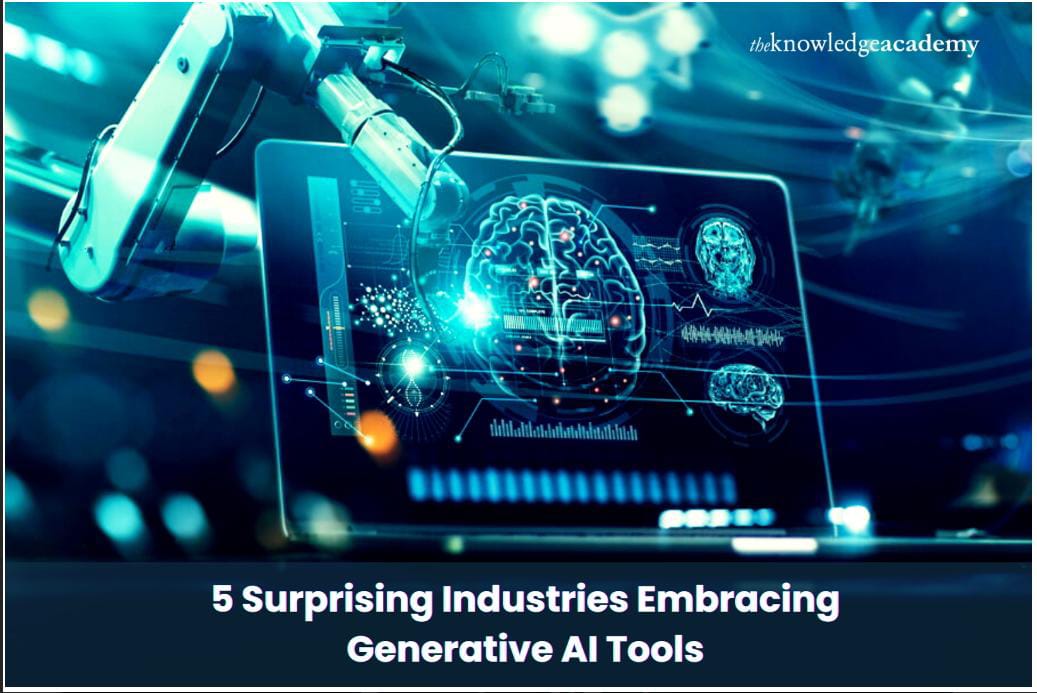Artificial Intelligence has rapidly transformed industries worldwide, becoming a solid tool for automating tasks, improving efficiency, and fostering creativity. While most people think AI is all about tech-heavy fields like IT and data science, it makes waves in some surprising industries. For many professionals, learning to harness the power of AI begins with Artificial Intelligence Tools Training. With the right foundation, understanding how to apply Generative AI Tools becomes much more accessible and highly beneficial across various fields.
Let’s look at some industries embracing AI in ways you may not have imagined.
1. Fashion: Designing the Future with AI
The fashion industry is now using AI techniques to expand its borders. Designers use generative AI tools to create bold, innovative designs that are faster to produce and tailored to individual customers.
How does it work? AI analyses trends, customer preferences, and previous designs to create unique, eye-catching garments. It is beneficial in predicting which designs will become the next significant success. Many firms use AI to create fashion collections with little involvement from designers. It’s not just haute couture; fast fashion companies optimise production using AI-generated insights to cater to real-time trends.
2. Entertainment: AI in Film and Music Production
The entertainment industry might seem an unlikely candidate for AI disruption, but it’s been quietly transforming with the help of generative AI. With scriptwriting, scriptwriting, and other movie sequence creation, AI could assist filmmakers. It can also generate lifelike CGI characters and settings, speeding up the process of filmmaking while reducing costs.
Generative AI tools compose soundtracks and songs in music, blending genres in ways humans might not consider. Artists and producers can use these tools to generate beats, melodies, and complete compositions, enabling faster production. AI also helps in post-production editing, making sound mixing and mastering quicker and more precisely.
3. Healthcare: AI in Medical Research and Drug Development
Artificial intelligence may be the least considered aspect when contemplating healthcare. Nevertheless, the healthcare sector is undergoing a subtle transformation due to generative AI tools. A particularly exhilarating use is in drug recovery. Traditional methods for developing new drugs can take years, but AI has the potential to cut that time significantly by predicting which chemical compounds will work best against certain diseases.
AI-generated models can replicate pharmaceutical interactions with human biology, significantly speeding the trial-and-error process. Furthermore, AI is used to build individualised treatment strategies for individuals according to their genetic composition. Doctors can rely on AI-generated data to predict the best treatment approaches, offering patients a more tailored and effective solution.
4. Legal Sector: AI in Document Review and Case Prediction
It is surprising, but the legal sector is starting to use AI to make tedious tasks more efficient. Generative AI tools assist legal practitioners in analysing documents, seeing trends, and predicting case outcomes based on past data. These systems can efficiently analyse large quantities of legal documents, enhancing the speed and precision of the review process compared to human methods.
Lawyers and firms use AI-generated models to predict case outcomes, helping them prepare stronger arguments. It also assists in drafting contracts, saving legal professionals time on repetitive tasks. While AI will not replace lawyers soon, it’s reshaping legal work.
5. Real Estate: AI for Property Valuation and Sales Automation
AI is also stepping into the property market. AI tools evaluate property values, predict housing market trends, and generate virtual property tours. This is a significant advantage for both real estate agents and potential buyers.
For real estate agencies, AI-generated data helps determine property values by analysing location, size, historical prices, and local market trends. Generative AI tools can help buyers figure out when it is best to buy or sell a house, which is helpful information. Moreover, AI-generated virtual tours give potential buyers a detailed view of properties without needing to visit them in person, a tool that has become especially valuable in recent years.
Conclusion: The Future of AI Is Everywhere
The future of AI is broader than anticipated, transforming sectors such as fashion, music, healthcare, and real estate. To stay ahead, gaining a solid understanding of AI through Artificial Intelligence Tools Training is essential. The Knowledge Academy provides free resources to assist you in succeeding in this dynamic AI-driven environment.
